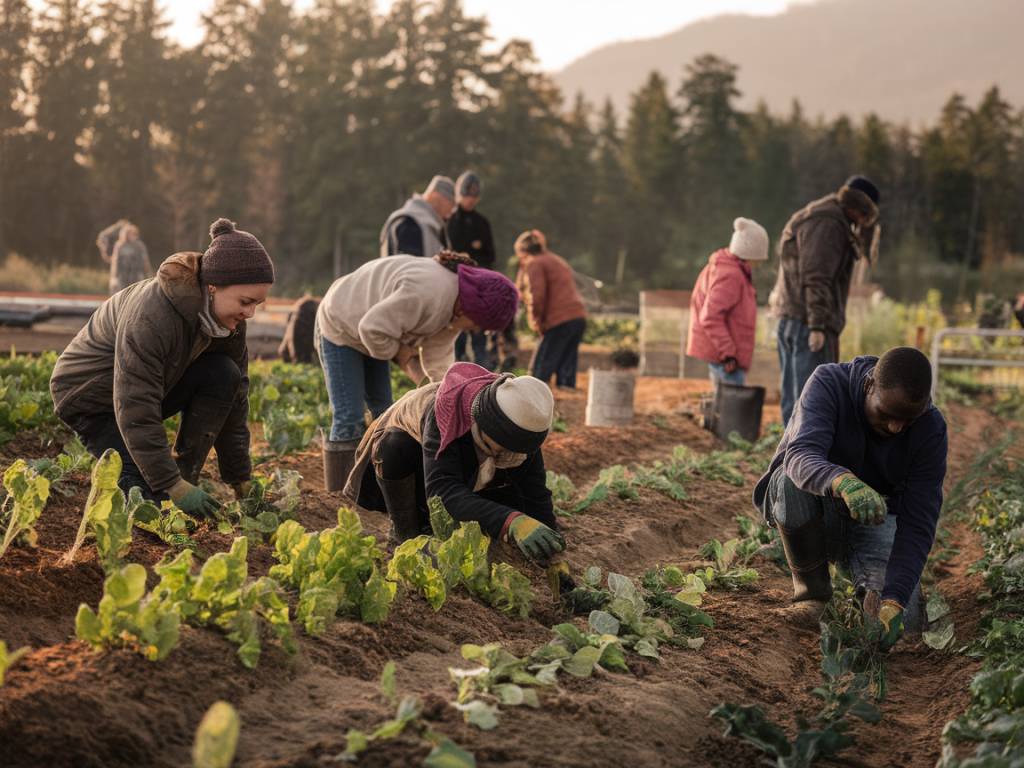How sustainable agriculture can improve nutrition and health

How sustainable agriculture can improve nutrition and health
The Intersection of Sustainable Agriculture and Health
When we think of agriculture, the image that often comes to mind is vast fields of crops, hardworking farmers, and the cycle of planting and harvesting. However, what if I told you that the way we cultivate our fields has a direct impact not only on the environment but also on our health? Welcome to the world of sustainable agriculture, where the choices we make today can lead to healthier lives tomorrow.
Understanding Sustainable Agriculture
Sustainable agriculture isn’t just a buzzword; it’s a philosophy that intertwines farming practices with environmental stewardship and social responsibility. But what exactly does it entail? In its essence, sustainable agriculture aims to meet food and textile needs without compromising the ability of future generations to meet theirs. This means employing farming techniques that protect the environment, public health, human communities, and animal welfare.
Imagine walking through a farm that uses cover crops to protect the soil, practices crop rotation to maintain soil fertility, and avoids harmful chemical pesticides. Each of these practices serves a dual purpose of enhancing agricultural productivity while simultaneously reducing environmental degradation.
Nutrition: The Heart of Sustainable Agriculture
Now, let’s delve into how sustainable agricultural practices can bolster nutrition and health. Have you ever tasted a tomato picked fresh off a vine nurtured through organic means? If so, you might’ve noticed a burst of flavor unparalleled by store-bought varieties. This isn’t just about taste; it’s an indicator of nutrient density.
Crops grown sustainably are often richer in nutrients. Since they are cultivated in healthy, nutrient-dense soils without the overwhelming use of synthetic fertilizers, the result is food that packs a punch when it comes to vitamins and minerals. Consuming such nutrient-rich foods can potentially lead to better overall health outcomes. After all, as the saying goes, « You are what you eat. »
Improving Public Health through Sustainable Practices
The impact of sustainable agriculture extends beyond individual nutrition. It has profound implications for public health. For instance, practices that refrain from using harmful pesticides and herbicides reduce the risk of chemical-related diseases among farm workers and communities living near agricultural areas.
Moreover, sustainable livestock practices are pivotal in curbing antibiotic resistance. By promoting healthier animal-rearing conditions and eliminating the overuse of antibiotics, sustainable farms can contribute to a lower prevalence of antibiotic-resistant bacteria, safeguarding human health.
A Glimpse into Real-Life Successes
Consider the story of a small community in France that embraced permaculture, a sustainable agriculture method. This approach revolutionized local food production, increasing biodiversity and enhancing food security. What’s more, residents reported feeling healthier, and local healthcare providers noticed reduced rates of diet-related illnesses.
Another inspiring example comes from Kenya, where agroforestry (integrating trees and shrubs into crop and animal farming systems) has improved soil quality, enhanced food variety, and boosted nutritional intake among communities.
The Global Perspective: Combatting Climate Change
Our world faces significant climate change challenges, and agriculture plays a role both as a contributor to greenhouse gas emissions and as a solution for carbon sequestration. How does sustainable agriculture fit into this? By adopting practices that reduce emissions and enhance carbon storage, such as no-till farming and organic cultivation, sustainable agriculture can be a powerful ally in the fight against climate change.
When we support sustainable practices, we’re not just encouraging healthier food production but also taking a stand for a healthier planet. It’s a two-for-one deal: better nutrition for us, and a better environment for generations to come.
Embracing Sustainable Choices in Daily Life
So, how can we, as individuals, support and benefit from sustainable agriculture? Start by choosing locally grown, organic produce. This not only supports local farmers who prioritize sustainable methods but also ensures you’re consuming fresh, nutrient-rich foods.
Every small step counts, and when combined, these efforts can lead to significant changes in our food systems and health outcomes.
A Call to Action
As we stroll through markets or browse grocery store aisles, let’s remember the power we hold as consumers. Our choices can dictate production methods and encourage a shift towards sustainable agriculture. Imagine a world where nutrition is prioritized, health is enhanced, and the planet thrives—all through the food we choose to eat.
The journey towards integrating sustainable agriculture into our lives is just that—a journey. It requires community effort, informed decisions, and a little bit of curiosity. Are you ready to embark on this health adventure with us?






